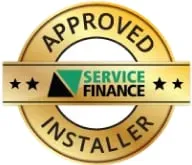Howdy, folks! It’s Tommy Cool here, your friendly air conditioning expert on the Gulf Coast of Texas. Living and working in Corpus Christi, we’ve all come to appreciate the ocean breeze, the salty air, and, of course, the heat that’s just part of coastal living. And if there’s one thing I’ve learned, it’s that your air conditioner is your best friend when it comes to keeping your home comfortable year-round.
But coastal weather has its quirks, and all that heat, humidity, and salt in the air can take a toll on your AC if you’re not proactive. So today, I’m sharing some tips to keep your AC running efficiently and ensure it stands the test of time. Let’s dive in!
1. Regular Maintenance is Key
If there’s one golden rule in the AC world, it’s this: regular maintenance saves money. Scheduling a professional tune-up at least once a year can help catch small issues before they turn into big, expensive problems. During these check-ups, a technician will clean your system, check refrigerant levels, inspect for wear and tear, and make sure everything is running smoothly.
2. Clean or Replace Your Filters
Coastal living means a lot of airborne particles—think dust, sand, and pollen—making their way into your home. A dirty filter makes your AC work harder and can lead to higher energy bills. Check your filters once a month and clean or replace them as needed. It’s a quick, inexpensive step that makes a world of difference.
3. Protect Against Salt Air
Salt is great on margarita rims, but it’s not so kind to your AC unit. The salty air can cause corrosion, especially on the outdoor condenser coils. Consider rinsing off your outdoor unit with a garden hose every month to remove salt buildup (make sure it’s powered off first). For extra protection, invest in a special coating or ask your technician about anti-corrosion treatments.
4. Optimize Your Thermostat Settings
Set your thermostat to a comfortable but energy-efficient temperature. For most coastal homes, 78°F when you’re home and a bit higher when you’re away works like a charm. Smart thermostats are also a great investment—they learn your habits and adjust settings automatically, saving energy and money.
5. Seal Your Home
Drafty windows and doors are like leaving your car windows down in a rainstorm—not ideal! Check for gaps or leaks around windows, doors, and even ductwork. Seal them up to keep the cool air in and the hot, humid air out. Your AC won’t have to work as hard, and your energy bills will thank you.
6. Give Your Unit Some Shade
If possible, position your outdoor unit in a shaded area. A little protection from the scorching sun can improve efficiency. Just be sure there’s enough clearance around the unit for proper airflow.
7. Keep Humidity in Check
Coastal air is thick with humidity, and that extra moisture can strain your AC. A dehumidifier can help reduce the load on your system while making your home feel cooler and more comfortable. Many modern HVAC systems come with built-in dehumidification options—ask your technician if yours does.
8. Upgrade When It’s Time
No one likes to think about replacing their AC, but sometimes it’s the best move. Older systems tend to be less efficient, and newer models offer better energy savings and durability. If your AC is over 10-15 years old, it might be time to explore your options. Trust me, the upfront investment pays off in lower utility bills and fewer repairs.
9. Keep the Area Around Your Unit Clear
Your outdoor unit needs space to breathe. Keep plants, shrubs, and debris at least two feet away to allow proper airflow. This simple step helps prevent overheating and ensures your system works as efficiently as possible.
10. Stay on Top of Storm Prep
Hurricane season is part of life on the Gulf Coast, so don’t forget to secure your AC unit before a big storm. Turn it off at the breaker to prevent electrical damage, and consider covering it with a tarp or specialized cover to protect it from flying debris.
Keeping your AC running efficiently in coastal weather isn’t rocket science, but it does take a little TLC. Follow these tips, and your system will reward you with years of reliable, cool comfort—even on those sweltering summer days. And remember, if you ever need a hand or have questions, Tommy Cool is just a call away. Stay cool out there, y’all!








